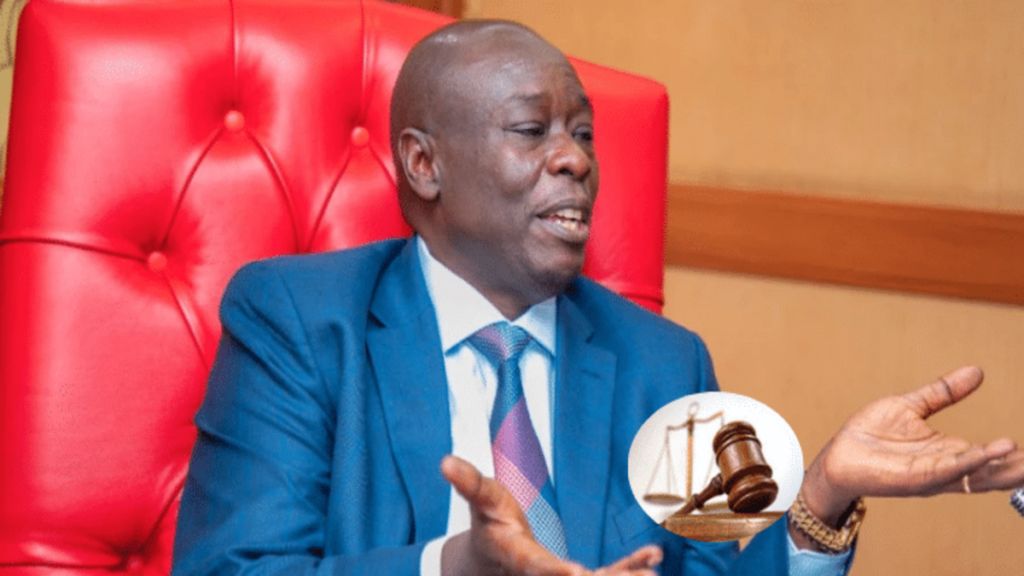
In a significant turn of events at the Court of Appeal in Nairobi, former Deputy President Rigathi Gachagua has withdrawn his application challenging the High Court proceedings that led to his removal from office.
The withdrawal comes after Professor Kithure Kindiki’s swearing-in as Kenya’s new Deputy President, effectively rendering Gachagua’s legal challenge moot. The Appeals Court granted Gachagua permission to withdraw his application during yesterday’s proceedings.
The former Deputy President had initially filed the application seeking to stop the High Court from proceeding with a case that questioned the constitutional validity of his position. At the heart of his appeal was a challenge to the Deputy Chief Justice’s authority to empanel judges for his case.
Court documents reveal that Gachagua’s legal team argued the case had been overtaken by events, particularly following Kindiki’s assumption of office last week. The court agreed with this assessment, noting that continuing with the proceedings would serve no practical purpose.
“The application has been rendered academic by subsequent events,” stated the presiding judge, whose ruling emphasised the practical implications of Kindiki’s swearing-in ceremony.
Legal experts following the case note that this development effectively closes a chapter in Kenya’s political landscape. “This withdrawal signifies the end of a contentious legal battle that had captured public attention,” remarked John Kamau, a constitutional lawyer based in Nairobi.
The proceedings, which lasted less than an hour, saw Gachagua’s lawyers present their withdrawal application without opposition from other parties involved in the case. The court’s decision allows all parties to move forward, acknowledging the new political reality.
Professor Kindiki, who has already begun his duties as Deputy President, was not present during the court proceedings. His office released a statement focusing on his commitment to serving Kenyans in his new role.
The withdrawal marks a significant shift from Gachagua’s earlier stance, where he had vigorously contested the High Court’s decisions regarding his position. His legal team had previously argued that proper procedures were not followed in the appointment of judges to hear his case.
Political analysts suggest this development could help reduce tensions in Kenya’s political sphere. “This withdrawal might contribute to political stability by removing one source of legal uncertainty,” said Mary Wanjiru, a political scientist at the University of Nairobi.
The Appeals Court’s decision comes amidst wider discussions about constitutional interpretation and the separation of powers in Kenya. Legal scholars have pointed out that this case has raised important questions about judicial procedures and constitutional governance.
Looking ahead, attention now shifts to how this development might influence future legal challenges involving high-ranking government officials. The precedent set by this case could impact how similar situations are handled in years to come.
Members of Parliament who spoke to reporters outside the court expressed satisfaction with the outcome, noting that it allows the country to focus on pressing national issues rather than prolonged legal battles.
The withdrawal also received positive reactions from various stakeholders, including civil society organisations that had been monitoring the case closely. They emphasised the importance of respecting institutional processes and the smooth transition of power.
As this legal chapter closes, observers note that the focus can now shift to the working relationship between President Ruto and his new deputy, Professor Kindiki, as they address the challenges facing the nation.
The court’s registrar confirmed that all related proceedings have been formally concluded, with costs being borne by the respective parties. This development effectively brings to an end one of the most closely watched legal battles in Kenya’s recent political history.